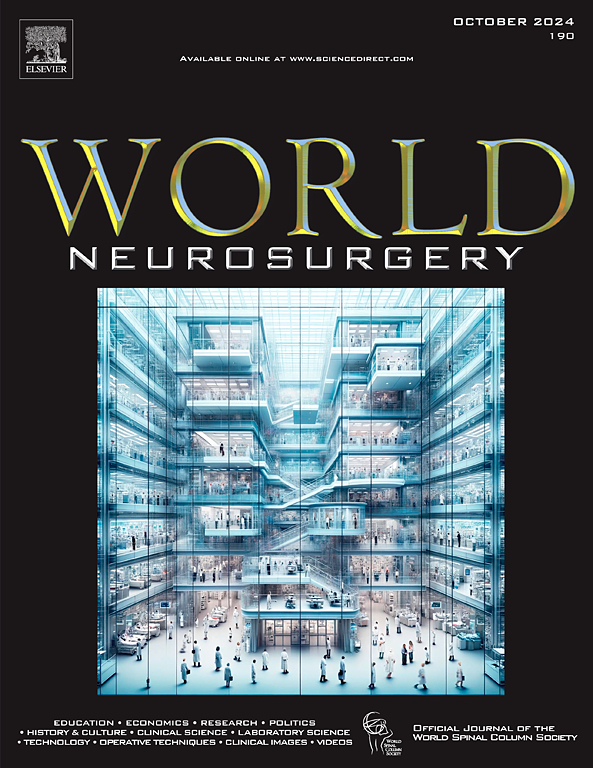Molecular Biomarkers Associated with Traumatic Brain Injury Outcome in Individuals of Black Racial Identity or African Ancestry: A Narrative Review
IF 1.9
4区 医学
Q3 CLINICAL NEUROLOGY
引用次数: 0
Abstract
Traumatic brain injury (TBI) is a leading cause of death and disability worldwide and a major global health concern. In the United States, individuals of Black or African American racial identity experience disproportionately higher rates of TBI and suffer from worse postinjury outcomes. Contemporary research agendas have largely overlooked or excluded Black populations, resulting in the continued marginalization of Black patient populations in TBI studies, thereby limiting the generalizability of ongoing research to patients in the United States and around the world. This review aims to highlight what is currently known, and identify knowledge gaps, in research on molecular biomarkers associated with TBI in Black populations. A PubMed literature search was conducted to identify studies that investigate molecular biomarkers associated with TBI outcomes that include participants of Black racial identity and those of African ancestry. Studies identified for this review investigate biomarkers associated with TBI outcomes through a lens that specifically examines race, ethnicity, or ancestry. Most studies focused on blood- or cerebrospinal fluid-derived protein biomarkers. Studies identified statistical variation in S100ß, ubiquitin C-terminal hydrolase-L1, amyloid-ß, and tau across participant race, either at baseline or following TBI. Additionally, several studies identified genetic polymorphisms associated with TBI outcomes related to apolipoprotein E, ANKK1, and COMT polymorphism and TBI outcome and identified allele frequency variation across population ancestry. The role of race and ancestry on biomarkers associated with TBI outcome remains indeterminate and subsequent work is still required to understand the implications for patients with TBI.
与黑人或非洲血统的创伤性脑损伤结果相关的分子生物标志物:叙述性综述。
外伤性脑损伤(TBI)是世界范围内死亡和残疾的主要原因,也是一个主要的全球健康问题。在美国,黑人或非裔美国人的种族身份经历了不成比例的更高的TBI发病率,并且遭受了更糟糕的损伤后结果。当代研究议程在很大程度上忽视或排除了黑人群体,导致黑人患者群体在TBI研究中继续被边缘化,从而限制了正在进行的研究对美国和世界各地患者的推广。这篇综述的目的是强调目前已知的,并确定知识空白,在研究中与黑人TBI相关的分子生物标志物。对PubMed文献进行了检索,以确定研究与TBI结果相关的分子生物标志物,包括黑人种族身份和非洲血统的参与者。本综述确定的研究通过专门检查种族、民族或祖先的视角调查与TBI结果相关的生物标志物。大多数研究集中在血液或脑脊液衍生的蛋白质生物标志物上。研究确定了S100ß、泛素c端水解酶- l1、淀粉样蛋白-ß和tau蛋白在基线或TBI后的统计学差异。此外,一些研究发现了与TBI结果相关的遗传多态性,与载脂蛋白E、ANKK1和COMT多态性和TBI结果有关,并确定了等位基因频率在人群祖先中的变化。种族和血统对与TBI结果相关的生物标志物的作用仍不确定,后续工作仍需了解其对TBI患者的影响。
本文章由计算机程序翻译,如有差异,请以英文原文为准。
求助全文
约1分钟内获得全文
求助全文
来源期刊

World neurosurgery
CLINICAL NEUROLOGY-SURGERY
CiteScore
3.90
自引率
15.00%
发文量
1765
审稿时长
47 days
期刊介绍:
World Neurosurgery has an open access mirror journal World Neurosurgery: X, sharing the same aims and scope, editorial team, submission system and rigorous peer review.
The journal''s mission is to:
-To provide a first-class international forum and a 2-way conduit for dialogue that is relevant to neurosurgeons and providers who care for neurosurgery patients. The categories of the exchanged information include clinical and basic science, as well as global information that provide social, political, educational, economic, cultural or societal insights and knowledge that are of significance and relevance to worldwide neurosurgery patient care.
-To act as a primary intellectual catalyst for the stimulation of creativity, the creation of new knowledge, and the enhancement of quality neurosurgical care worldwide.
-To provide a forum for communication that enriches the lives of all neurosurgeons and their colleagues; and, in so doing, enriches the lives of their patients.
Topics to be addressed in World Neurosurgery include: EDUCATION, ECONOMICS, RESEARCH, POLITICS, HISTORY, CULTURE, CLINICAL SCIENCE, LABORATORY SCIENCE, TECHNOLOGY, OPERATIVE TECHNIQUES, CLINICAL IMAGES, VIDEOS
 求助内容:
求助内容: 应助结果提醒方式:
应助结果提醒方式:


